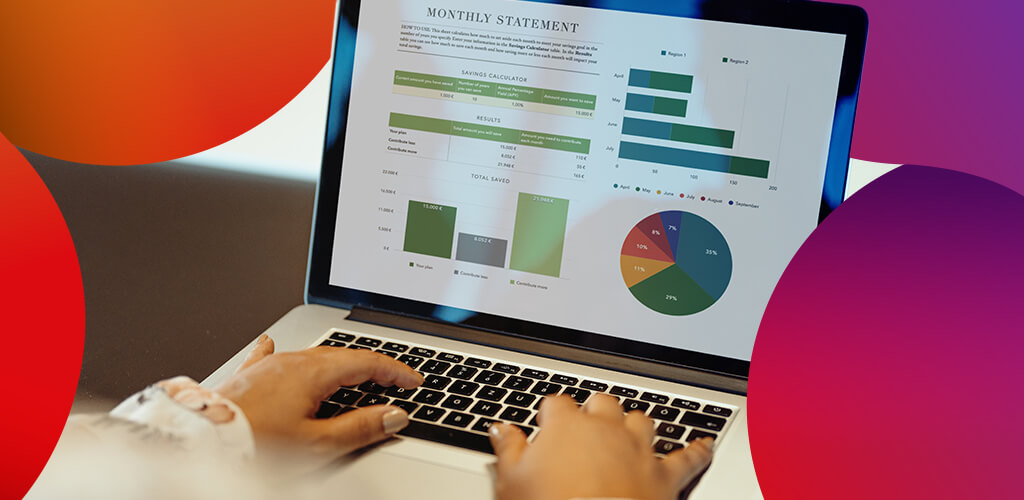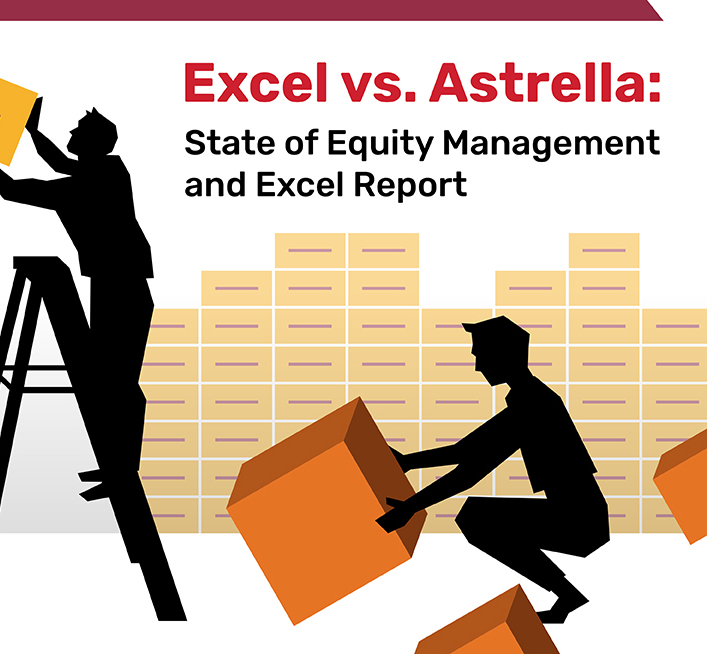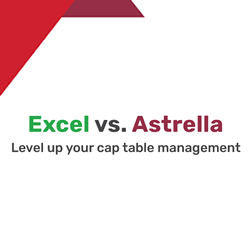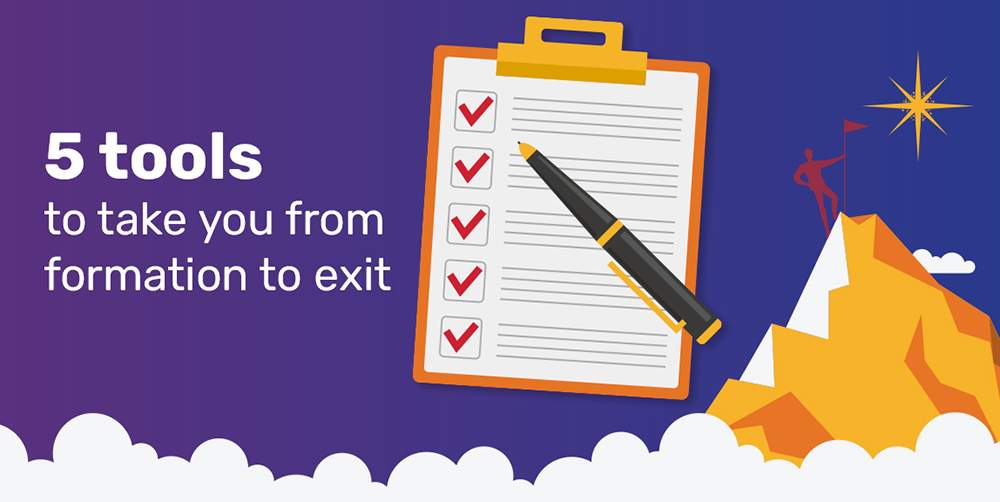Starting a business is an exciting yet daunting process, and one of the critical decisions you have to make is which cap table solution will be best for your startup. A cap table solution is critical to tracking investments in a company and managing equity, so you must take the time to find the right fit for your needs. This article will provide an overview of what you should look for when selecting a cap table solution, including understanding different solutions, comparing features and costs, evaluating the pros and cons of popular solutions, and considering support options and timeframe considerations. With this information, you can decide the best cap table solution for your startup.
What To Look for In a Cap Table Solution
When selecting a cap table solution for your startup, you should consider several vital factors. Your solution choice will determine the reliability, accuracy, and ease of use you manage and track ownership information. Finding a solution that offers robust customer service support, a comprehensive view of the cap table structure, and clear guidelines for making changes is essential. Additionally, ensuring that your chosen solution integrates with the other tools commonly used by startups, such as accounting software, is necessary.
Easy-to-manage and trackable ownership information is essential when choosing a cap table solution. This will allow you to quickly identify any changes made to equity distribution or capitalization structure to keep up with trends and ensure all stakeholders are informed. A good cap table solution should also generate reports quickly and accurately. This ensures accurate record keeping and makes it easier for investors to monitor their returns on investment.
Another factor to consider is strong customer service support from the provider of the cap table solution. Access to knowledgeable staff who can answer questions quickly can save time and money in the long run. They must also have experience supporting startups so they understand their unique challenges. Finally, quick response times are critical for ensuring smooth operations within your business.
In addition to customer service support, your chosen solution must provide a comprehensive view of the company’s cap table structure. This includes ownership percentages, voting rights, vesting details, vesting schedules, and more – all in one place, so you don’t have to search multiple documents or spreadsheets whenever you need an update or want to make changes. A sound system should also handle numerous funding rounds easily so you can accurately track each investor’s stake in your company over time.
It is also essential that the system has clear guidelines for how changes such as equity splits or new investments are handled within the system – this helps reduce errors due to manual entry or incorrect calculations when making adjustments in real-time during fundraising rounds or other significant events affecting equity distribution in your business.
Finally, integration with accounting software solutions is another crucial factor when selecting a cap table solution for startups – having this capability ensures seamless access between different systems used by your business so that data does not become siloed in separate databases, which could confuse later on down the line if information needs updating across systems manually at any point in time during operations.
Understanding The Different Types of Solutions Available
When choosing a cap table software for your startup, it’s essential to understand the various options available and if they will meet your needs. The system’s infrastructure is necessary as this determines how reliable and quickly data can be accessed. Cloud computing systems provide scalability and stability compared to traditional platforms. Furthermore, they can be linked to accounting software, giving a broader perspective of the company’s fiscal status.
The user interface should also be considered when deciding on a solution; does it have a modern design? Is it straightforward to use? Are there personalized features or additional components that make managing your cap table easier? Ease of navigation is crucial, so users do not spend time trying to figure out how to use the product.
It’s beneficial to check customer reviews when selecting a cap table solution; what experiences have other companies had with this product? Are there any commonly mentioned issues or complaints you should be aware of? Reading feedback from others who have used the technology can help you gain insight into whether or not people were content with its performance.
Questions about customer service support, such as email helplines, telephone assistance, online tutorials, live chat, or FAQs, should also be asked before committing to anything. You may want customizations on the platform, so investigate if those are offered, too. Additionally, timelines for implementation and changes must be considered – some solutions require more setup than others, while updates might take longer in some instances than others. Knowing these timescales upfront helps ensure you select something that meets your company’s requirements in both present and future situations.
By evaluating all aspects, including reliability, usability, customer reviews, customization options, and set-up timescales, startups can choose an appropriate cap table solution tailored specifically to their business needs that offers comprehensive views into their financial structure with clear guidelines for necessary adjustments over time coupled with excellent customer service support from knowledgeable staff members able to answer questions promptly and accurately.
Comparing Features and Costs of Cap Table Solutions
Choosing the correct cap table solution is an important decision for any business. It’s essential to evaluate each solution’s features, costs, and support options to ensure your company makes a wise investment. As you compare solutions, look for ones that can quickly scale with your business as it grows. Additionally, consider security and privacy features so your data remains safe and secure. Furthermore, when deciding, factor in pricing plans based on usage or number of users and any added costs, such as customer service support fees or training fees. Finally, ensure the provider offers comprehensive tutorials and support options like online documentation or webinars so that all team members can use the system correctly and effectively. By considering these considerations when selecting a cap table solution for your startup company, you’ll have a much better chance of making an informed decision about which best meets current needs while being mindful of future growth considerations.
Pros And Cons of Popular Cap Table Solutions
When researching cap table solutions for your startup, it is essential to compare the pros and cons of each option. Equity Management Software (EMS) and Cap Table Management Software (CTMS) are the most popular solutions. To help you make an informed decision, let’s explore the benefits and drawbacks of each solution.
Equity Management Software (EMS) comprehensively views the company’s cap table structure. This type of software is typically cloud-based, making it easily accessible from any device. It also allows users to manage vesting schedules, set up automatic notifications for shareholders, track investments and dilution, and customize reports. EMS solutions have a lower cost and more customization options than other types of software. However, some EMS solutions may lack features such as automatic document generation or support for multiple equity classes.
Cap Table Management Software (CTMS) is designed specifically for managing a company’s cap table. It offers automated calculations, secure data storage, and automated document generation that are unavailable with EMS solutions. CTMS solutions typically have higher costs, but they offer more comprehensive functionality than EMS solutions. Additionally, CTMS solutions often come with customer service so users can get help when needed. However, some CTMS products may be limited in scalability if the company proliferates or has multiple associated entities.
It is essential to evaluate all these factors when selecting a cap table solution for your startup; research the market thoroughly and obtain customer feedback to determine which solution best meets your needs in terms of cost-benefit analysis, features offered by different providers, potential risks associated with each solution, customer support options available and timelines related to setting up each system. Considering all these factors before deciding which option to choose for your business will ensure that you are making an informed choice about which cap table solution best fits your current needs and future growth plans.
Timeframe Considerations and Support Options
When selecting a cap table solution for your startup, it is essential to consider the timeline of the project and any associated deadlines. If specific dates must be met to launch or scale operations, it’s necessary to ensure that the chosen solution can meet those timelines. Many solutions also offer customer support options such as training and implementation assistance for new users, so investigate what type of assistance is available and whether it fits your timeline.
In addition to understanding the project’s timeframe, startups should pay close attention to compliance with applicable regulations. Each country has its own rules governing how data must be collected and stored and restrictions on how companies can use customer information. Checking that the chosen service meets these requirements is essential before deciding which provider to choose.
Finally, it is important to research other resources available for further exploration into selecting a cap table solution. Various forums and online publications are dedicated to helping startups find reliable solutions that meet their needs. Additionally, many software companies provide tutorials and demos so potential customers can better understand how their product works before making a purchase decision.
By considering all these factors when selecting a cap table solution for your startup, you can decide which provider best meets your current and future needs – ensuring success now and in the long term.
Conclusion
In summary, selecting the right cap table solution for a startup is essential for success. To make an informed decision, all aspects must be carefully considered, including features, cost, scalability, security and privacy features, and pricing plans. The two most popular solutions – Equity Management Software (EMS) and Cap Table Management Software (CTMS) – each have unique advantages and disadvantages that must be considered when making this decision. Additionally, considerations such as compliance with applicable regulations, timeline of the project and associated deadlines, resources available for further exploration, or learning potential pitfalls or future considerations should all be evaluated before concluding. Considering all these factors when selecting a cap table solution for their startup company can help ensure they have chosen the best possible option to meet their current requirements while remaining agile enough to adapt to future needs.
Ultimately, researching thoroughly to decide which cap table solution is right will save time and money in the long run. To get more information on selecting the right cap table solution for your startup, we recommend reading our whitepaper on ‘Selecting the Right Cap Table Solution for Startups.’ We also suggest exploring some of the different solutions available today and seeing which one fits your needs best!

Tom Kirby
Tom Kirby serves as the Head of Global Sales at Astrella. With more than 20 years of experience in sales and business development, he is dedicated to fostering strong client relationships and assisting both private and public companies in understanding and effectively communicating their value.
































































































































